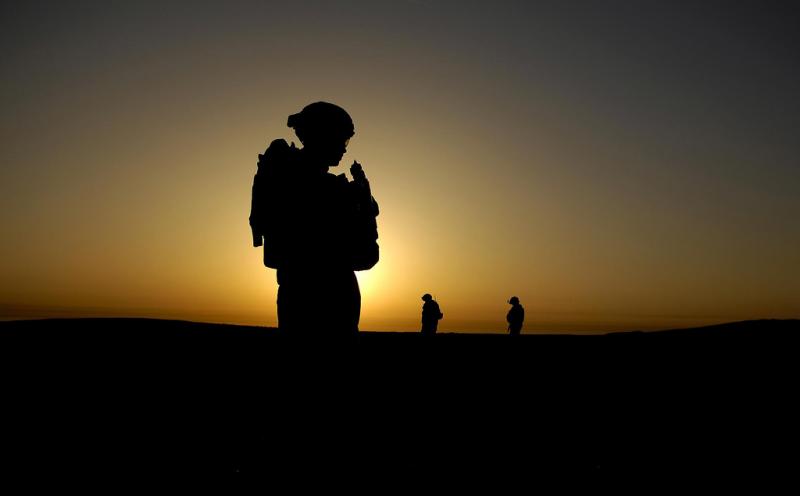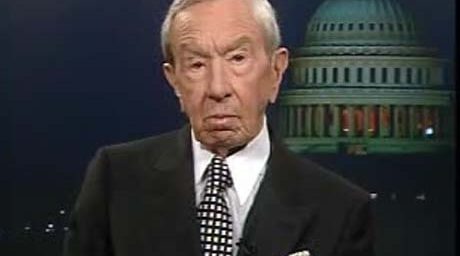Iraq Withdrawal Debate
President Obama's surprise announcement Friday that all U.S. forces would leave Iraq in time to be home for the holidays has been roundly condemned. While there are real concerns about what happens next, there was no better alternative.
President Obama’s surprise announcement Friday that all U.S. forces would leave Iraq in time to be home for the holidays has been roundly condemned. As I argue in my New Atlanticist piece “Leaving Iraq a Necessary Risk,” while there are real concerns about what happens next, there was no better alternative.
While there are no doubt many Republicans looking for any excuse to condemn Obama for foreign policy weakness, there’s an actual policy dispute here. Retired General Jack Keane, former Vice Chief of Staff of the US Army and key advocate of the 2007 Surge, is among the most credible critics, calling it a “disaster” in an interview with Rowan Scarborough of the Washington Times. He declares, “We won the war in Iraq, and we’re now losing the peace.” He continues, “We should be staying there to strengthen that democracy, to let them get the kind of political gains they need to get and keep the Iranians away from strangling that country. That should be our objective, and we are walking away from that objective.”
[…]
When the outgoing Bush administration negotiated this timetable three years ago, it was widely assumed that it would be renegotiated to allow a significant number of American forces to remain on the ground in a supporting role. Al-Maliki would surely prefer to allow that to happen. But the only way he could allow that politically was to insist that they be subject to Iraqi sovereignty. And no American president could allow that. Even our forces in developed states like Germany and Japan are under Status of Forces Agreements that cede jurisdiction over criminal matters to US authorities. And they’re not in a position where their official duties call for them to shoot local nationals.
McCain and others have argued that Obama could have overcome this objection if only he had the will. But Christopher Hill, who served as US Ambassador to Iraq from 2009 to 2010, puts it succinctly: “It is hard to see what any U.S. administration should do when a country’s leaders no longer want to station our troops on their soil. Threaten them? Bribe them? Somehow offer more compelling arguments so that they will slap the side of their head with the palm of their hand and say, ‘oh! Now I understand!'”
Additionally, as The Atlantic’s Conor Friedersdorf points out, “The U.S. was always going to leave Iraq eventually, and Iran was always going to exert more influence on the region as a result.” He adds, “if the war you advocate requires for its success the indefinite deployment of U.S. troops, you’ve advocated a failed war.”
It has been almost eight years since U.S. forces toppled Saddam Hussein’s regime. At some point, the Iraqis were going to have to manage their own affairs. Ready or not, that time has come.
Much more at the link.






One of the reasons I was ag’in it in the first place. One need only look at the history of the last seventy years for the two alternative conclusions to a U. S. war: indefinite deployment of troops or withdrawal in defeat or, at best, cloudy circumstances.
We now look forward to an analogous situation unfolding in Afghanistan. There are no prospects whatever for Afghanistan’s being able to provide for its own security on its own, our continuing to provide massive funding for an Afghan military that’s more likely to turn to Pakistan or the Taliban than towards us without an ongoing troop presence in Afghanistan is pretty unlikely, and our military presence in Afghanistan has become a three day old houseguest.
Who outside the usual Republican shriekers “condemned” this move?
@ponce: The piece lists several. And “roundly” doesn’t mean “universally.”
I submit that this is not actually a debate, because no one really wants to win the argument, and retain an occupation.
This is just people wanting to score points or go on record so that they have the “I told you so” option in the future.
(Or more painfully, it is an echo of those older arguments that we can’t leave, because that would devalue lives given. Remember those early-year interviews with fathers of the fallen, asking them about withdrawal? As I said then, we needed years to process it all, to make it less about that.)
It can mean “universally.”
a : in a complete or thorough manner : thoroughly
b : by nearly everyone : widely
All I saw in your article were wingnuts complaining about the withdrawal.
This was a colosal blunder that was never going to turn out in favor of the US…cut the chord and go home. If we stay there 20 years Iran will still be the victor.
And when can we all agree to stop listening to McCain…his entire career is built on being a shitty pilot. Enough already.
Don’t sell McCain’s career short, he also married into money.
@ Ponce…
You’re right…that was pretty mavericky of him.
It’s interesting historically speaking that we seem to be returning to the punitive raid as the preferred method of making war. It’s old school. (Really, really old school. Think apes at the start of 2001: A Space Odyssey old.) Beats hell out of Mutual assured Destruction, and given that we just don’t seem to have the appetite for wholesale invasion followed by cultural destruction and reconstruction, it’s what we’ve got. And it meshes nicely with advances in robotech.
@michael reynolds:
Air power, and especially drones, have extended “gunboat diplomacy” into the interior.
BTW, as a fact that is sure to gather “unhelpful” counts, it is simply true that when we were 1000 deaths into Iraq, people said “we can’t stop now, that would make those lives a waste.”
And so we added a few thousand more, as we processed the inevitable outcome.
It really a bizarre aspect of human culture that we set limits for ourselves. That trade-off is not open for review. It is too culturally painful.
BTW James, here is an interview with Gen. Jack Keane from two and a half years ago where he says Obama’s plan to withdraw all U.S. troops from Iraq by the end of 2011 is a good idea.
http://tv.nationalreview.com/uncommonknowledge/post/?q=ZDE0NzdmOWE4YTQzODA0Yzg0YTZkZGRlMDBmZmU2NzM=
You have to wonder why he is now sounding like just another shrill, hate-filled wingnut armchair general.
I’d hate to think it’s because he’s now suckling at the wingnut welfare titty.
@ponce: Interesting. Keane was ISW chairman at the time of the interview, too, so no reason to think that’s the source of his changed views.
What’s most interesting is that he’s singing a very different tune on Iran. Then, he thought Iran had lost, Iraq wanted nothing to do with them, and were going to be a long-term ally of the US. Now, he’s worried about Iranian influence taking hold. I don’t know what’s changed on the ground to cause such a fundamental reassessment.
Yep,
From “Good” to “a Disaster” is quite jump.
“Influence” seems like such a petty thing to worry about.
I doubt it will lead to anything really troubling, like Iraq and Iran forming an alliance and invading Saudi Arabia.